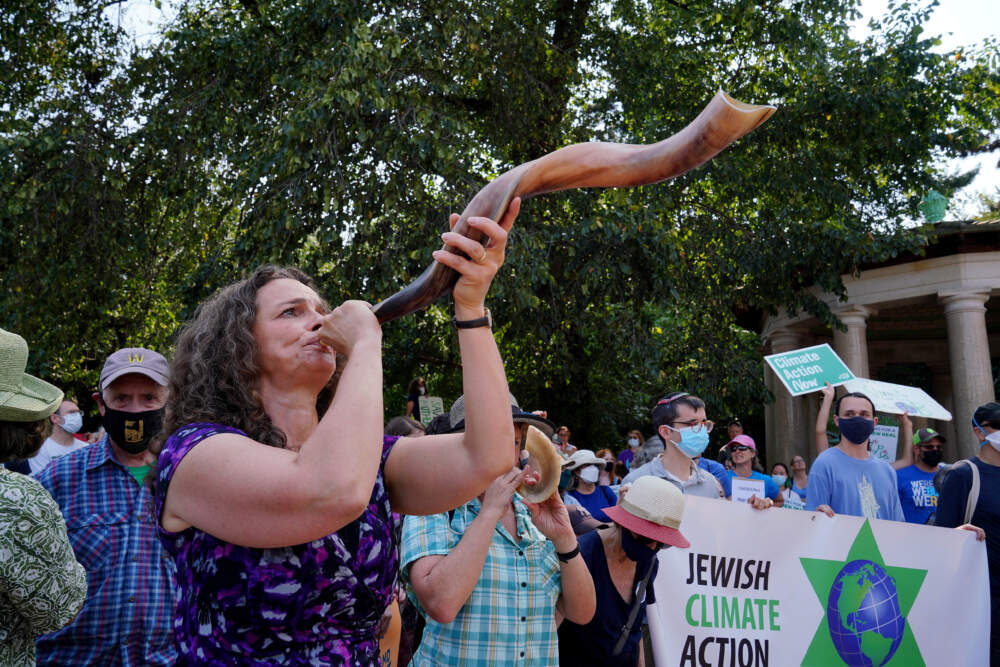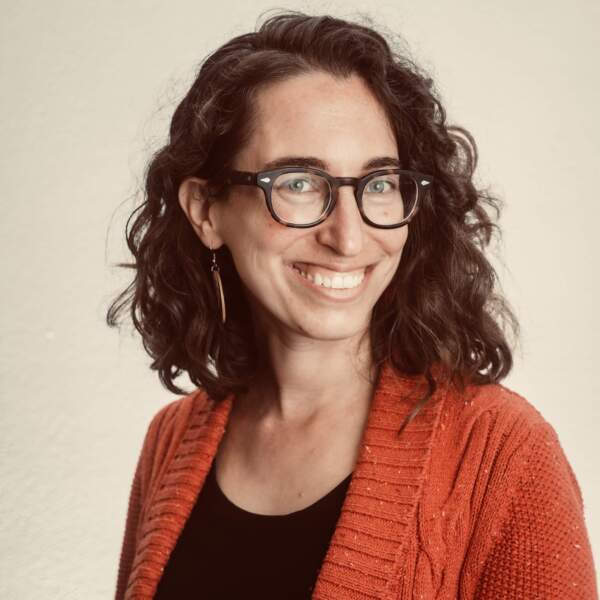Advertisement
Commentary
'The climate crisis is an issue of the soul'

The annual U.N. Climate Change Conference — known this year as COP28 — once again falls in a month that calls many of us to rituals of light: A Hanukkah menorah, a Christmas tree, a Kwanzaa kinara.
As a rabbi, I welcome Hanukkah as a time to not only celebrate our ancestors’ ancient miracles of light, but also as a chance to publicize today’s miraculous light — climate solutions and historic wins that offer hope in the dark — and an opportunity to rededicate ourselves to the light of a more just, livable future for all.
I feel a special need to gather with my community this Hanukkah — during a particularly painful moment for Jews in the U.S., and around the world. It is also the end of the hottest year in Earth’s recorded history, with massive heat waves, flooding, wildfires and climate-driven migration for millions of people. This year sharply illustrated the existential threat that climate change presents to our communities today and for generations to come.
Right now in Dubai, lawmakers, heads of state, activists, faith leaders and (troublingly) representatives of the fossil fuel industry are also gathering to continue to chart a course for the future of global climate action.
I welcome Hanukkah as a time to not only celebrate our ancestors’ ancient miracles of light, but also as a chance to publicize today’s miraculous light — climate solutions and historic wins that offer hope in the dark ...
The summit considers the biggest challenges facing our climate-changed world. How to reduce our reliance on fossil fuels emissions to stanch the overheating of the planet. How to develop and invest in clean technologies, especially in developing countries. How to provide loss and damage funds — compensation to the underdeveloped countries that are least responsible for, but most impacted by, climate disasters.
While there is some good news — the price of clean energy continues to fall, movements are increasingly centering the voices and needs of communities on the frontlines of the crisis, and efforts to reduce carbon dioxide (CO2) emissions are working — we have a long way to go, and time is short. We are seeing great strides in clean energy technologies and investments, but we’re also facing opposition from the fossil fuel industry at home and especially in developing nations with new and expanding investments in dirty energy projects.
In the face of this overwhelming catastrophe, many of us feel the need to turn away. How do we collectively face the truths of this crisis, and where do we begin to act boldly, building a thriving future for all?
Advertisement
For me, and for millions of others, it’s our history of reinvention and resilience — from biblical times to today — along with our courageous ancestors, our spirited prayer and our anchoring rituals that give us the chutzpah and the comrades with which to take on the challenge. After all, the climate crisis is not only an ecological, economic, and justice issue — it is also an issue of the soul. Many of us, across generations, grapple with existential questions about our collective future and our ability to shape it. Many express feelings of fear, grief, rage and helplessness, as well as a need for imagination, connection and action-driven hope. To address the broader climate crisis, we must also resource our communities spiritually and psychologically.
This year, for the first time, there is a Faith Pavilion at COP. It’s a long-overdue recognition that faith communities represent a powerful constituency and can offer important spiritual tools to confront the climate crisis.
In our work at Dayenu, we are building a spiritually-rooted movement, drawing on Jewish wisdom and tradition, to mobilize American Jews to raise up a moral voice and advocate for systemic climate solutions. Our roadmap includes mobilizing the American Jewish community for political action, building relationships with candidates and elected officials and campaigning to end financial backing for the fossil fuel industry.
As the greatest emitter of greenhouse gasses since the Industrial Revolution, the U.S. bears a historic responsibility for addressing the climate crisis. Last year, after decades of public pressure and a sustained 18-month campaign by climate leaders across the country, Congress passed the Inflation Reduction Act (IRA), the first piece of meaningful climate legislation that provides billions of dollars for clean energy investments. And this Hanukkah, as we light candles and join together to sing the ancient blessings, we rededicate ourselves to ensuring that the light of those investments reaches all communities.
We are at a pivotal moment. The climate crisis is not going away, and the difference between the best and worst outcomes is vast. Our bold, collective action today — and our ability to spiritually resource ourselves for the long game — is what will make the best outcomes possible. As the climate activist, eco-theologian and Buddhist scholar Joanna Macy puts it, we need to transition from an “industrial growth society” to a “life sustaining society;” we must shift attitudes from exploitation to respect, from extraction to regeneration, from competition to cooperation.
Our organization’s Hebrew name, Dayenu, translates to “enough” and has a double meaning. We’ve had enough of climate denial and delay — and we have enough to transform our world. We have the solutions, technology, people, political power and spiritual resilience to win bold climate action for our generation and generations to come.
The Torah teaches that when our ancestors wandered in the desert, God reminded them that their redemption was in their hands. Deuteronomy 30:11 says, “It is not too baffling for you or beyond your reach. It is not in the heavens or beyond the sea. … The thing you are seeking is very close to you, in your mouth and in your heart to do.”
In other words, the future of the world is in our hands, and we have the capacity to make a difference.

